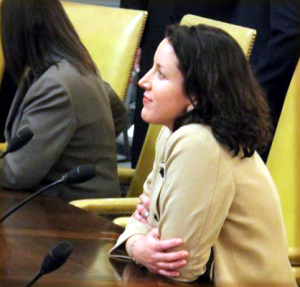By: State Senator Kathleen O’Connor Ives – Jan. 2018
 In the 2017 legislative session, I worked closely with Representative Frank Moran to get $1 million in state funding released that Northern Essex Community College (NECC) needed to move forward with plans to create a Hospitality and Culinary Arts Center in downtown Haverhill. This was a critical step toward finalizing the advancement of exciting new offerings at NECC, with a new culinary education option offered locally.
In the 2017 legislative session, I worked closely with Representative Frank Moran to get $1 million in state funding released that Northern Essex Community College (NECC) needed to move forward with plans to create a Hospitality and Culinary Arts Center in downtown Haverhill. This was a critical step toward finalizing the advancement of exciting new offerings at NECC, with a new culinary education option offered locally.
In addition to the $1 million in funding, the college received an additional $2 million in state funding to secure a space for the Culinary Arts and Hospitality Center and $150,000 in Workforce Skills Capital Grants to purchase equipment. NECC has also received financial support through private funding as well, and the total cost of the center will have an approximate cost of $5 million. This effort wouldn’t have been possible without the leadership of former Representative Brian Dempsey, who secured the state funding and the vision of President Lane Glenn of Northern Essex Community College, who works tirelessly and creatively to development new learning opportunities for students.
The new facility will include culinary labs, a computer lab, classroom space, a multi-use function space and retail space in the downtown dining district of Haverhill. The anticipated opening is the fall of 2018.
The college currently offers an Associate of Science Degree in Business Management: Hospitality Option and is planning to offer a Culinary Arts Certificate program. These programs will address the growing workforce needs in the hospitality sector, while providing students with experience in the field and career opportunities, as well as creating a partnership with Whittier Regional Vocational Technical High School and Merrimack Valley employers.
Vocational-technical students can take courses at Whittier or at NECC and receive concurrent credits, enabling students to enter the program with nine to twelve college credits, which puts them ahead academically, with a tuition savings too.
Expanding the offerings at community colleges in Massachusetts gives students the opportunity to receive a quality education at an affordable cost in fields that are in demand. I will continue to work to support these common-sense partnerships between vocational school students, local employers and our community and state college systems.
